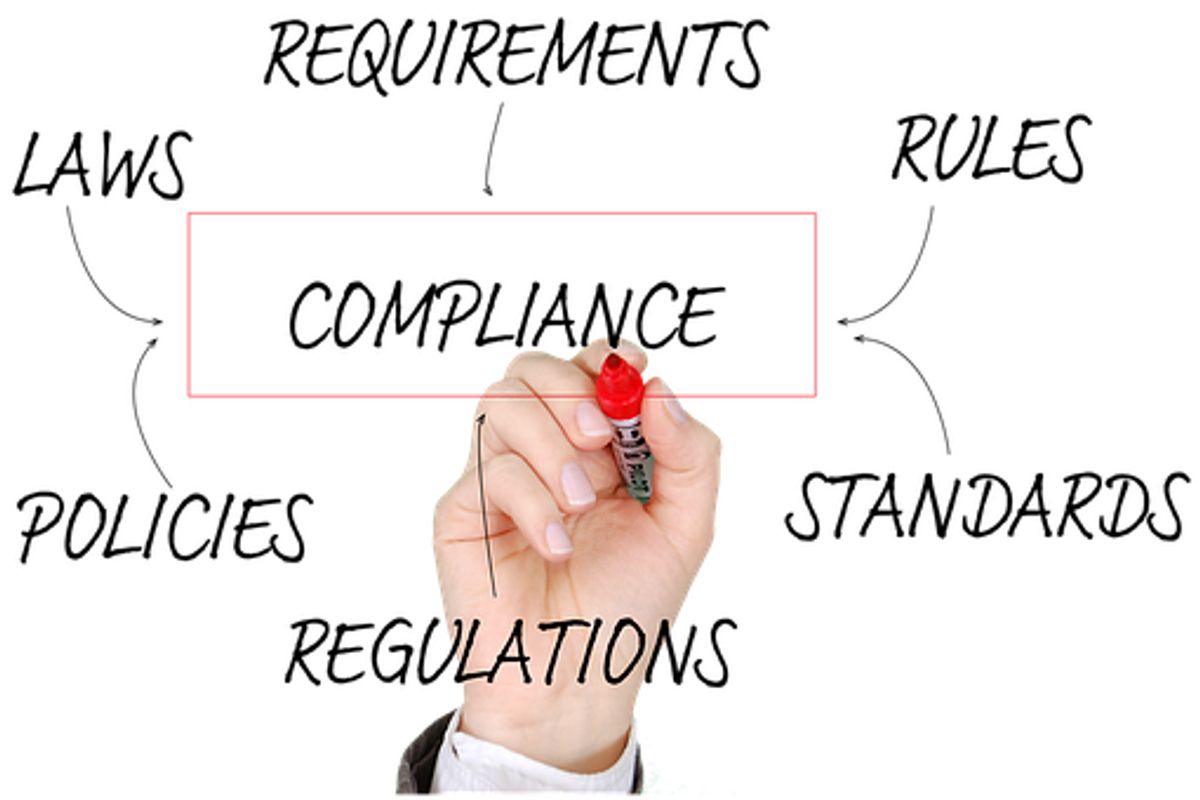Compliance means complete transparency, competent management, and control over processes. Businesses that do not adhere to compliance rules are viewed as high-risk operations. They are more likely to suffer market and equity losses. Furthermore, they will be perceived negatively by consumers and prospects. The latter category includes those who may one day become paying customers.
Corporate governance
Compliance and corporate governance are closely related concepts. Both imply the importance of demonstrating compliance with laws and regulations. According to Professor Sean J. Griffith of Fordham Law School, “Compliance is the new core of corporate governance.” Regulatory compliance is nothing new, but it has been subsumed into compliance. The idea is to have an autonomous compliance department that works to prevent and detect violations of corporate policy and law.
The origin of compliance is exogenous to the firm and comes from outside its usual constituency: the government. In the case of compliance, the government imposes a compliance mandate on the firm through various enforcement tactics and incentives.
A risk-based approach to compliance
The risk-based approach to compliance involves developing a framework for understanding and managing the risks posed by regulatory compliance issues and applying controls to minimize those risks. It helps compliance teams prioritize their efforts and focus on measures that reduce the likelihood of a breach. The risk-based approach emphasizes the importance of identifying and quantifying the impact of each risk before implementing controls.
This approach should be used to identify and manage risks across all processes. This includes regulatory risks derived from standards such as ISO 14971. Additionally, risks should be classified according to the severity of the possible harm and the foreseeable consequences. In addition, a risk-based approach should be used for supplier selection, evaluation, and monitoring.
HIPAA mandates
The HIPAA Privacy Rule is the national regulation that governs the privacy of protected health information (PHI). It provides an individual’s right to access and correct inaccurate PHI and requires covered entities to take reasonable steps to maintain the privacy of PHI. The rules are intended to prevent breaches of PHI and provide consumers with greater protection.
The Act also applies to business associates of health care providers. Any company that sells health care services to these organizations must ensure HIPAA compliance. Everyone, from computer programmers to cloud service providers, must be aware of and meet HIPAA requirements.
IT Compliance
For businesses, IT compliance means taking appropriate steps to secure their information and ensure their customers’ and clients’ privacy and security. IT professionals are responsible for maintaining internal policies and providing systematic proof of adherence to laws and regulations. Using appropriate security measures is critical to maintaining these standards, which include securing sensitive data, preventing computer hacking, and preventing employees from downloading illegal content.
To ensure compliance, companies must create a comprehensive document repository that stores all critical documents in one central location. This ensures that everyone has access to the latest information and helps monitor costs and violations.
Covered entities
There is an important distinction between compliance meaning for covered entities. A covered entity must use reasonable efforts to protect customer information in compliance. However, in some instances, the actions of covered entities may not be considered reasonable or a violation of the rule. In such a case, the covered entity may face civil lawsuits, mandatory penalties, or both.
Compliance with the Privacy Rule requires covered entities to get authorization before sharing protected health information with third parties for certain purposes. This includes marketing. An insurance agent may personally sell a health insurance policy to an individual to promote other health insurance policies but cannot disclose the patient’s PHI to a third party without the patient’s permission.
Copyright act
Copyright act compliance is a serious responsibility for everyone who uses content. The law protects the creation and distribution of works that are not freely available to the public. Any individual or organization that violates the copyright act may face criminal and civil penalties. This book will teach readers how to comply with the Act. It also contains sample copyright policies.
It is important for all businesses to monitor the legal use of third-party content and mitigate the risk of copyright infringement. Here are eight practical steps that you can take to ensure that you are fully compliant:

